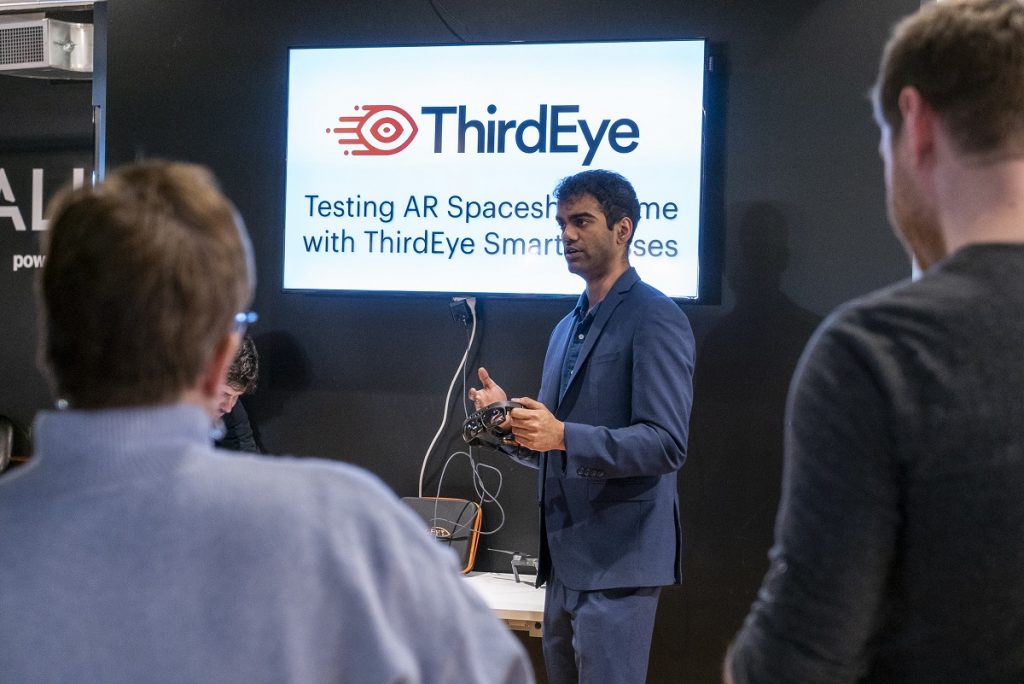5G networks are coming, and they’re expected to open up new doors for AR and VR. Verizon is hoping to be on the cutting edge of those innovations. The company recently held an event at its 5G Labs in New York to showcase its partnerships with startups and entrepreneurs in the AR and VR spaces.
Recently, Verizon opened the doors of its 5G Labs in Chelsea, to showcase companies working in everything from smart glasses to AR-optimized home improvement. The event also provided an opportunity for attendees to learn more about 5G technology and the power it will bring to AR and VR.
What Will 5G Bring to AR and VR?
In short, it’s all about network speed. 5G will reduce latency and enable personalized experiences everywhere.
“Only a few objects can be augmented with 4G,” TJ Vitolo, Director of Verizon’s 5G Development Labs, told us. “5G can support the potentially vast augment needs in a retail location.”
On the back end, 5G uses normal servers and eliminates the need for specialized hardware. This allows for quick network updates and more competition for operations like Amazon Web Services.
Verizon 5G Labs Partners
If the companies on display at the Verizon 5G Labs event are any indication, the coming changes in 5G technology are about to open up a whole new world for AR and VR.
ARPost caught up with a few of them at the event:
Evercoast

Evercoast is a virtual fitting room. It uses 3D scanning, telepresence and 16 high-definition cameras to capture video. It then delivers that video in 3D to VR glasses or looking glass displays so people can put themselves into different outfits and settings. 5G will provide a 100x increase in rendering speed. What now takes hours or even days will take seconds.
Soul Machines

Soul Machines are lifelike, emotionally responsive digital humans. They have personality and character that allow machines to talk face-to-face with humans. They recreate all aspects of human nature from emotional responses to eye dilation. The company is putting a new face on AI and expanding the boundaries for interaction in an AR environment.
ThirdEye

Third Eye is a mixed reality startup that began as mobile object recognition for the visually impaired but evolved into smart glasses for first responders. Wearing these glasses gives emergency management personnel access to a scene through drone views and maps. They provide opportunities for hands-free interaction in emergency situations. Network latency makes it difficult for the glasses to be utilized now without an existing hotspot. By the end of the year, the glasses will have an embedded cellular chip that can connect to a 5G network without a hotspot.
Streem

Streem allows a live technician to troubleshoot home improvement and repair issues virtually. The service eliminates the need for an in-home visit. Using machine learning and AR, a service provider can see the model number, measurements and other necessary overlaid on their phone to guide the interaction. 5G will enhance the service by allowing service providers to see details like product serial numbers. Additionally, it will decrease latency for the technician and the client. Companies can also use Streem to train new technicians, who can observe experts in action without disrupting their work.
5G Implementation
The first 5G smartphones are expected to hit the market in the first half of this year. Likewise, some cities will begin to see 5G networks this year. But, according to Government Technology, it could take as long as seven years for some places to reap the benefits of 5G due to conflicts between state and local governments and telecom companies.
However, Verizon points out that there are customers already reaping the benefits of 5G. Also, the plans for Verizon 5G mobile service is expected to reach 30 cities this year.
“Verizon was first to market with 5G, launching its 5G Home service in October 2018. This home broadband internet service is available in Houston, LA, Sacramento, and Indianapolis. Verizon plans to launch its 5G Ultra Wideband Network in more than 30 US cities in 2019. Verizon 5G Mobility will launch in the first half of 2019, and Verizon 5G Home will expand coverage to more markets in the second half of 2019,” the company says.




